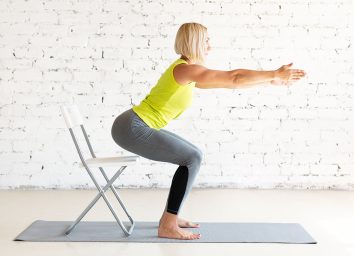7 Exercises That Are Too Hard on Your Arms After 50
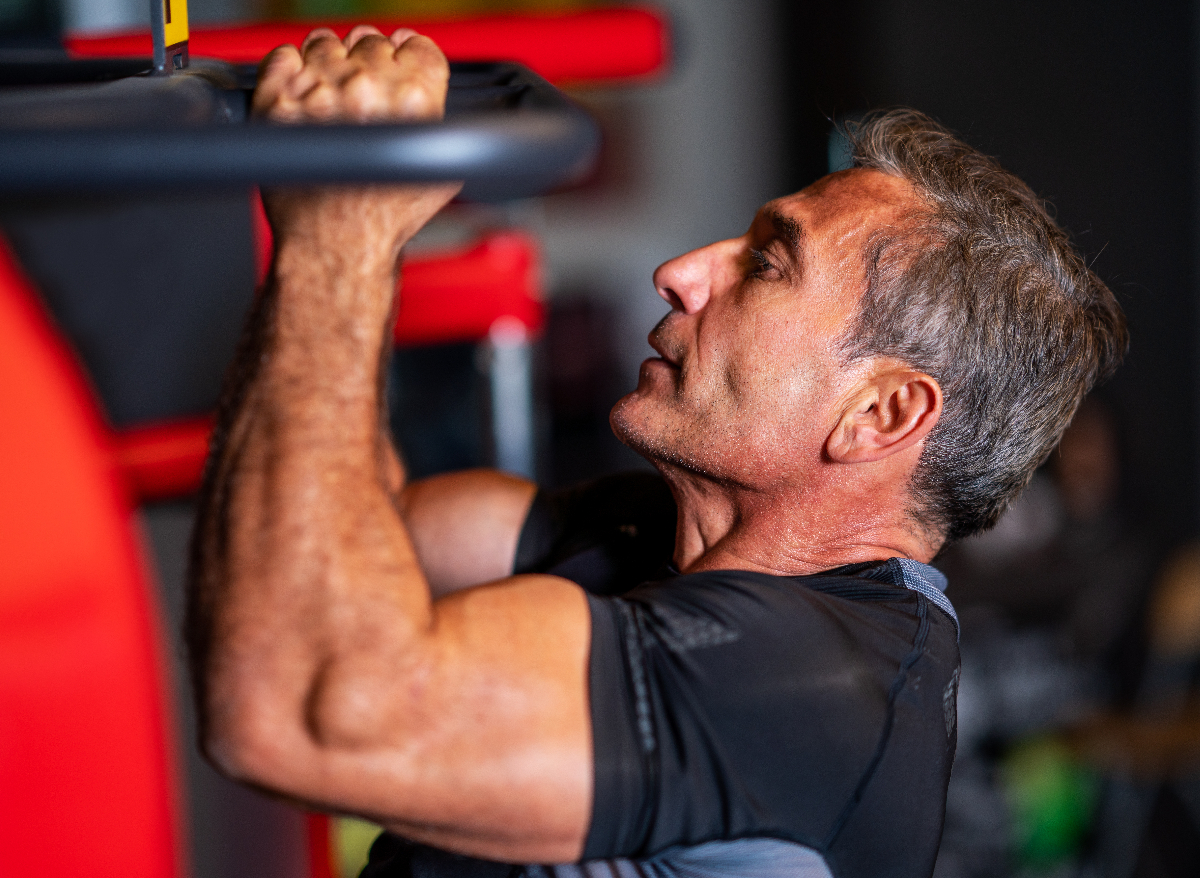
As you age through your 30s, 40s, and 50s, maintaining strength and mobility across your body is vital to ensure you can sustain a high-quality, independent lifestyle and maximize your "golden year." Resistance training is a key component in keeping your body healthy and strong into your 50s. However, certain exercises may cause unnecessary stress on the joint in your arms and shoulders. In some cases, performing these common exercises can do more harm than good—especially if you already have a history of injuries to these areas of your body. Today, you'll learn about seven exercises that are too hard on your arms after 50 so you know what to avoid.
Arm exercises that require heavy weights, complex movements, or intense pressure are typically among the worst offenders. That being said, ignoring these areas of the body is not the solution. Rather, you need to adapt your workout routine and exercise selection to ensure you can strengthen the various muscles in your upper body without doing additional damage.
In this article, I'll walk you through seven of the most common exercises I have seen injure my clients who are older than 50. In each case, I will discuss an alternative exercise you can perform to ensure you still benefit from the amazing effects of strength training. The benefits associated with resistance training far outweigh the risks overall, so please do not avoid resistance training simply because some exercises can be problematic.
Keep reading for seven exercises that are too hard on your arms after 50. And next, be sure to check out 5 Fitness Habits That Are Destroying Your Body After 40.
Traditional Pushups
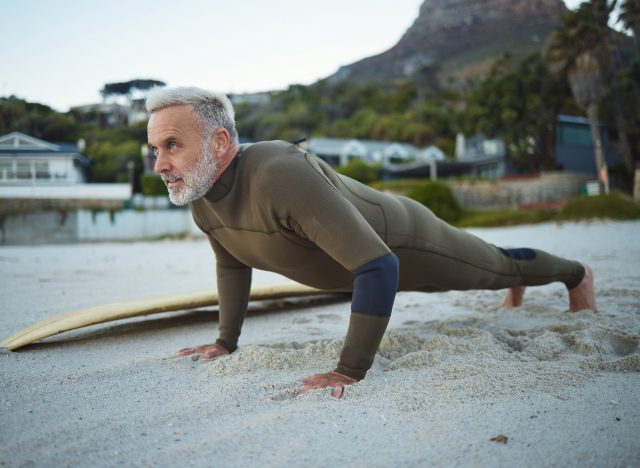
Pushups are a classic exercise that targets the chest, shoulders, and triceps. But they also put significant pressure on the wrists, which may lead to pain or injury for individuals over 50. If you have a history of a shoulder injury, they can exacerbate any nagging pain as well. While many 50-year-olds can safely perform pushups, there are also many who cannot.
Alternative: Parallel Grip Dumbbell Bench Press
The parallel grip dumbbell bench press is a good alternative for strengthening your chest, shoulders, and triceps. Keep the dumbbells held with a neutral grip, palms facing each another, to minimize strain on the shoulder.
Bench Presses
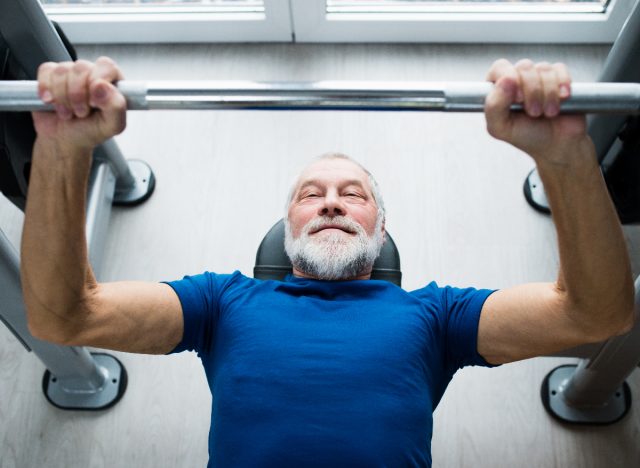
The bench press is another excellent strength-building exercise for the chest. However, like pushups, it can be challenging for those with shoulder issues or weaker wrists.
Alternative: Chest Press Machine
A chest press machine can provide the same benefits as a bench press but with more control and less strain on your joints. Make sure to adjust the machine to fit your body correctly, and use a weight that allows you to complete your reps without straining.
Barbell Bicep Curls
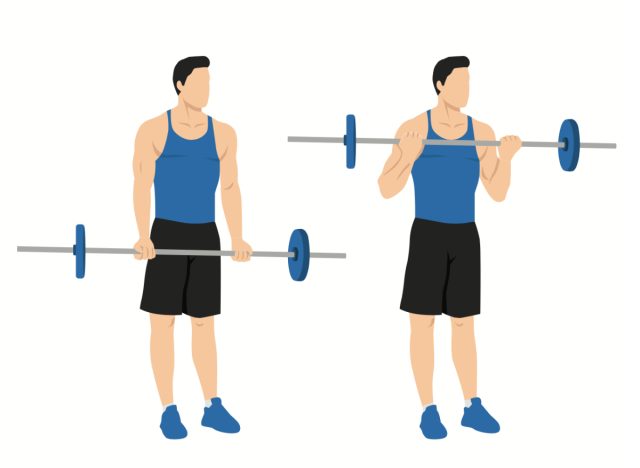
Bicep curls are the classic arm-strengthening exercise seen in virtually every muscle-building routine. However, the use of a barbell can sometimes cause strain at the elbow.
Alternative: Dumbbell Hammer Curls
Hammer curls with dumbbells are a safer alternative. They work the same muscles but allow for a more natural wrist position, reducing the likelihood of strain or injury. Keep your grip neutral, palms facing inward with the thumb side of your hand pointing up.
Tricep Dips
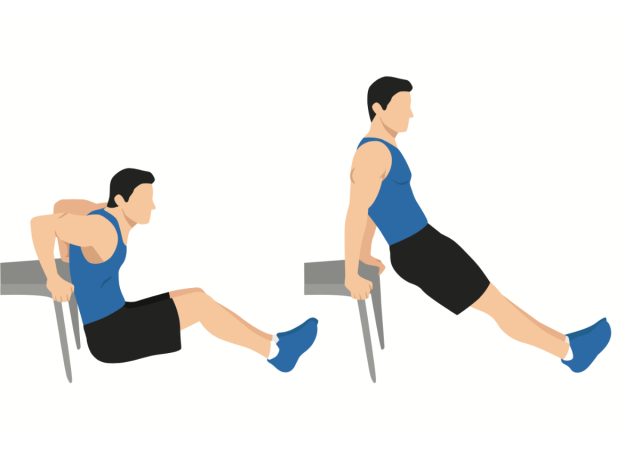
Tricep dips can be tough on your shoulders and wrists. Moreover, performing them incorrectly can lead to injuries. I generally recommend my older clientele avoid them.
Alternative: Tricep Kickbacks
Tricep kickbacks are a low-impact alternative that still targets your triceps effectively. The neutral grip limits strain on your elbow while still giving an excellent tricep pump.
Barbell Overhead Presses
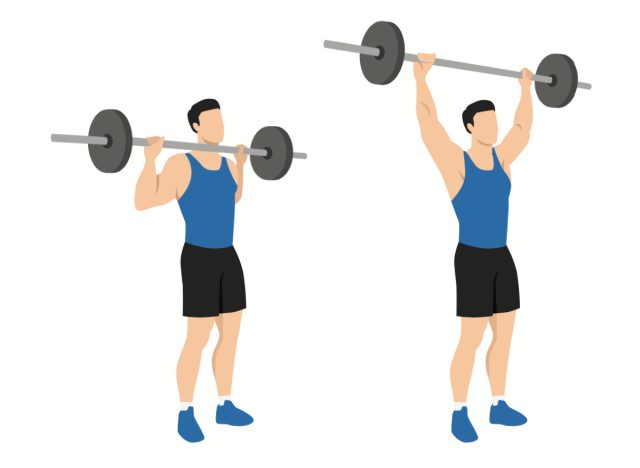
The barbell overhead press is a comprehensive upper-body exercise, but it can exacerbate shoulder and neck issues and poses some risk of injury if you lose control of the barbell as well. Many clients can safely perform them, however, seated dumbbell presses are a solid alternative.
Alternative: Seated Dumbbell Press
The seated dumbbell press allows you to maintain better control, reducing the risk of injury. Ensure your back is firmly against the backrest. Keep your grip neutral if you feel any strain on your shoulder when pressing the dumbbells upward.
Pull-ups
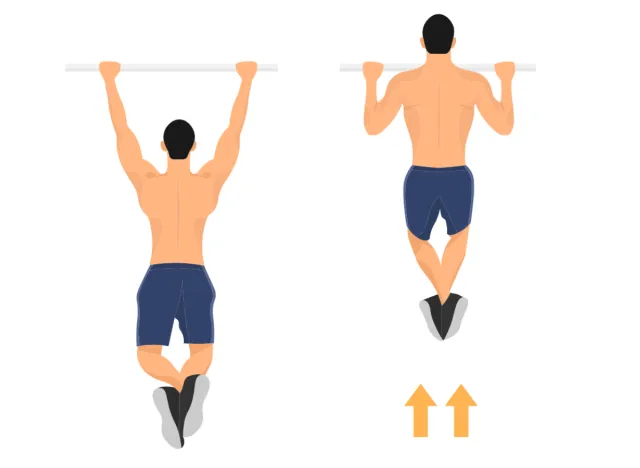
Pull-ups are fantastic for upper-body strength but can be challenging, which often leads older clientele to neglect this entire movement pattern. This leads to weak lats and ultimately limited overhead strength, both of which pose numerous risks for everyday life, ranging from back pain to the inability to safely reach for objects overhead.
Alternative: Lat Pulldown
The lat pulldown machine can mimic the benefits of pull-ups while providing better control and less joint strain. Adjust the weight so that you can complete your set without discomfort. Use a neutral or reverse grip if you have any shoulder or elbow issues.
Skull Crushers
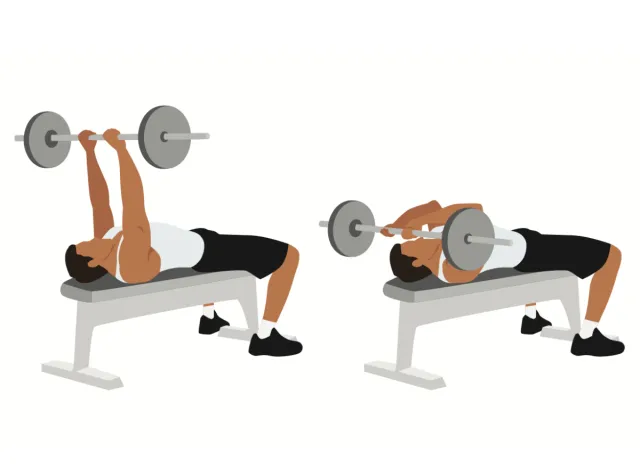
Skull crushers target the triceps but can be hard on the neck, elbows, and shoulders. Plus, the position of the weight above your face can be unwieldy and dangerous.
Alternative: Triceps Rope Extensions on Cable Machine
The triceps rope extension is a good alternative to strengthen your triceps. Using a weight stack machine removes the safety concerns associated with having a weight above your face. Additionally, the range of motion is a bit easier on your joints overall.



